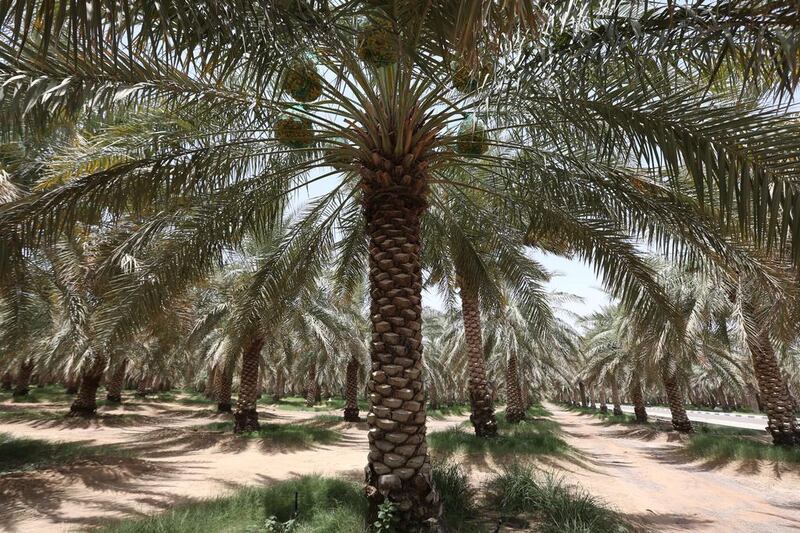Scientists from Saudi Arabi and China have sequenced the genome of one of the Arabian Gulf’s most popular varieties of date palm.
Khalas date palms are famed for their elongated fruit – yellow and brown when fresh – and are reputed by many to be the tastiest of all varieties grown in the Arabian Gulf.
A team of scientists from the King Abdul-Aziz City for Science and Technology in Saudi Arabia and the Beijing Institute of Genomics sequenced more than 90 per cent of the genome, covering about 96 per cent of its genes.
The scientists, building on work by a Qatari research team, estimated that the plant has about 41,600 genes. Their study began in 2008 and the new findings were published in the journal Nature Communication.
The genome assembly of the Khalas variety was compared to those of three others, commonly known as Agwa, Fahal and Skury.
The team also focused on identifying genes related to fruit development and ripening, providing a starting point for further research aiming to improve date palms’ yield and quality.
With a lifespan of more than 100 productive years, the date palm, Phoenix dactylifera, is also one of the world’s oldest cultivated trees. The earliest records of date palm cultivation go back to 3,700 BC.
Work to sequence the genome of various date palms is also done in the UAE. New York University Abu Dhabi has launched a Dh3.6 million effort aimed at learning more about the genes of 100 date species.
As reported in The National last year, the Abu Dhabi team has already managed to sequence two date varieties, commonly known as Halawi and Khisab.
vtodorova@thenational.ae





